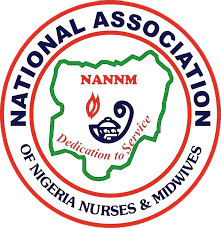. Nigeria losses N160b yearly to drug importation from India
THE House of Representatives is placing squarely on the shoulders of the Senate the delay in the passage of the National Health Bill (NHB) and the Bill Establishing a Commission on National Health Insurance (NHIC) with more regulatory duties from the existing National Health Insurance Scheme (NHIS).
On the international front, India and Nigeria will battle it out at the 66th World Health Assembly (WHA) in Geneva, Switzerland, for the headship of member-states’ mechanism on substandard/spurious/falsely labelled/falsified/counterfeit (SSFFC) medical products.
The Guardian learnt on Tuesday at the WHA in Geneva, Switzerland, that India was opposed to Nigeria, represented by the Director General of the National Agency for Food, Drug Administration and Control (NAFDAC), Dr. Paul Orhii, heading the body because it would facilitate Nigeria’s quest for self-sufficiency in drug production and World Health Organisation (WHO)- prequalified medical products.
Therefore, a formal meeting of the Steering Committee has not yet taken place because member-states have not yet agreed on a chairperson for the mechanism, though discussions were ongoing.
It was also learnt that Nigeria loses about N160 billion ($1 billion) yearly to India on drug import and that last year, the Global Fund spent over N752 billion ($4.7 billion) importing drugs used for developing countries and none was procured from Nigeria because the country does not have WHO-prequalified drugs.
Nevertheless, it was equally gathered that three Nigerian pharmaceutical firms would get WHO prequalification for their products by the end of this year.
Meanwhile, WHA member-states and delegates at the ongoing session in Geneva yesterday endorsed the Non-Communicable Diseases (NCD) Global Monitoring Framework.
The framework, which comprises nine global targets and 25 indicators, is set for adoption by member-states, and once adopted, member-states are encouraged to consider the development of national NCD targets and indicators building on the framework.
The Chairman, House of Representatives Committee on Health, Ndudi Elumelu, told The Guardian yesterday at WHA: “As a matter of fact, if not for this visit to Geneva, we would have concluded the NHB. Last week, we considered the Dental Technology, we have passed the NHIC, it is no longer NHIS, but now National Health Insurance Commission (NHIC).
“What we have done is to change the operation of NHIS to now say, be a regulator, do not be participating in the service itself. You should regulate the conduct of the providers and the players in the health insurance institution.
“We have passed and taken it to the Senate and would have expected Senate to just adopt it. But again, just like they had done in the NHB, they have started the novo. So we are now going to witness them doing public hearing for that and everything. Until they complete that, we probably will not have a conference to agree on areas that may be different from the once we have passed.”
However, Orhii disclosed that India is opposed to Nigeria chairing the mechanism, because, “once you are there, you are caught between the people who manufacture drugs, such as the United States and Europe, and generic manufacturers like India.
“India feels strongly that Nigeria is now pursuing prequalification of her medicines and thinks that because of that, her own market will shrink, especially in Africa, because Nigeria is the number one buyer of Indian medicines in the African continent.
“For instance, Nigeria, with a population of about 167 million, is a major recipient of the donation of drugs procured from India for developing countries. Imagine if you want to donate drugs to Nigeria and you buy from us because we have medicines that are prequalified by the WHO!
“But even more threatening is Nigeria’s proximity to some of these neighbouring African countries that are also major recipients of donation of medicines. That means that Nigeria can begin to sell medicines to some of these companies. So they are not very happy.”
Commenting on the NCD framework yesterday, Minister of Health, Prof. Onyebuchi Chukwu, said it is expected to drive progress in prevention and control of NCDs and provide the foundation for advocacy, raise awareness, reinforce political commitment and promote global action to tackle these deadly diseases.



